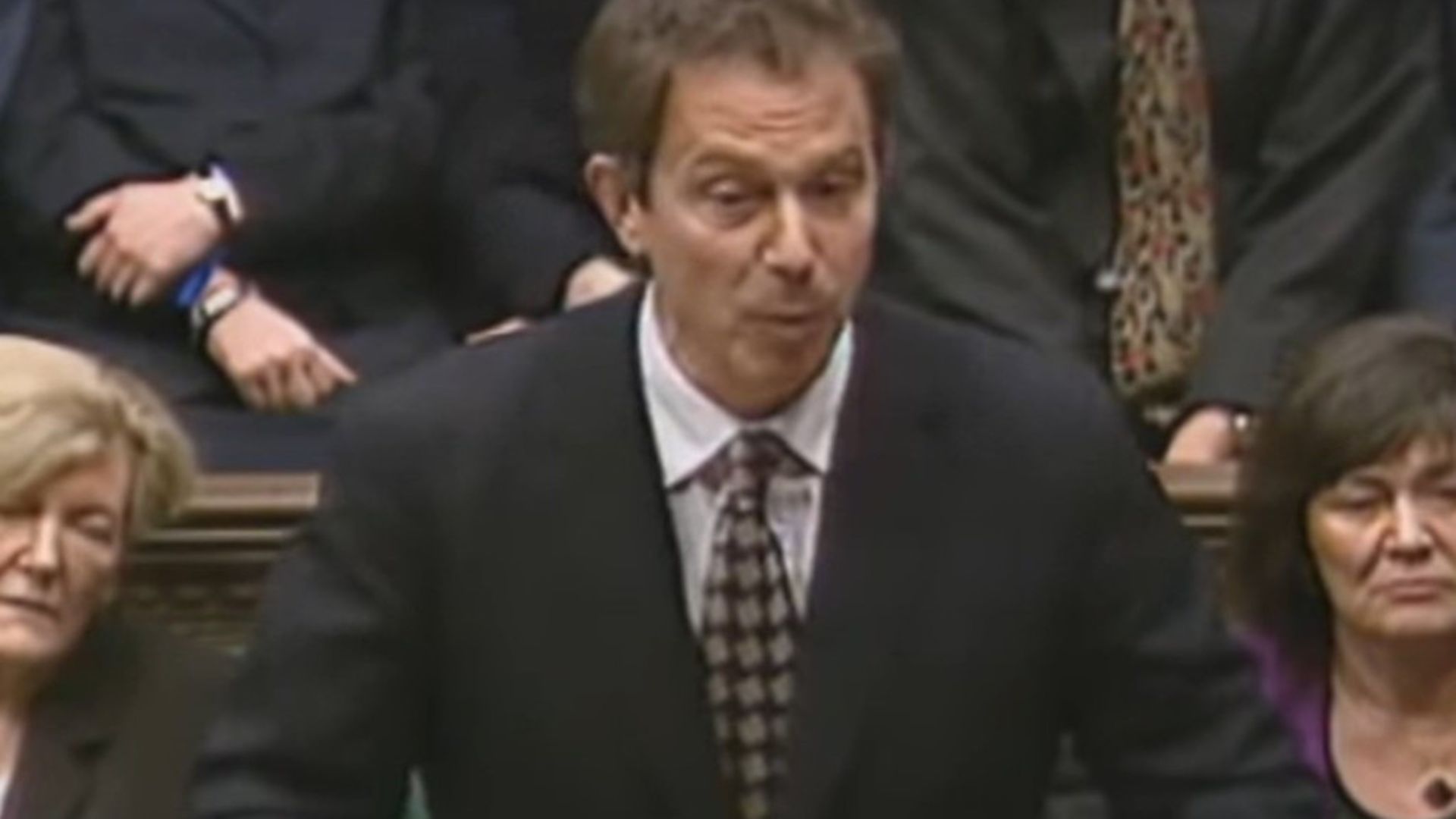
With no PMQs to review for a while, we look back on some classic encounters, starting with Tony Blair’s first as prime minister
The most striking initial take on the prime minister’s questions of May 21, 1997 is just old it looks. Yes, it’s 23 years old, but to my eye it looks like the 1970s. The 1990s should be Liam Gallagher and Patsy Kensit on the front of Vanity Fair, everybody necking Tab Clear in Global Hypercolour t-shirts. The YouTube footage is a sea of wall-to-wall grey, moustaches on the Labour benches and at least one bow tie among the Tories, everybody looking like they should be debating the three-day week.
But a new day had dawned, had it not? And a new format for PMQs, too – one of the incoming government’s first moves was to scrap the twice-weekly, 15-minute sessions and introduce the weekly (initally 3pm, now 12pm) Wednesday session. It wasn’t unilaterally popular; indeed the very first questioner Blair faced, Peter Taylor – a Tory Europhile, in the days such a thing existed – brought it up immediately. Taylor was ‘very grateful to him for finding time in his diary’ for PMQs. Tellingly, no leader of either main party has seen fit to change it back.
Taylor’s main question was on compensating pensioners for any damage done to pension funds as a result of Labour’s planned windfall tax on privatised utilities. Blair’s roundabout answer was that ‘this government, unlike the last government, is actually governing in the interests of the people in this country’.
If that issue-swerving is as much a feature of today’s PMQs – Boris Johnson does it, he just isn’t very good at it – other parts of it is are as much of a different age of the perms on show. On crime Blair, who sat next to Claire Short, spoke of ‘young tearaways and thugs’ – a line the next leader of the Labour Party, whoever is announced on Saturday, will never use. A hot topic was the lifting of the beef ban following the BSE outbreak, an epidemic which today seems relatively benign. Blair spoke of introducing a ‘drugs czar’, a czar being pretty much a panacea to all ills in the 1990s.
The leader of the Liberal Democrats, Paddy Ashdown, had two questions, both of which were very, very long. But what now seems remarkable is how relaxed and almost happy John Major, new leader of the opposition, looks. And not in a beaten-by-a-landslide-but-still-arrogantly-claiming-to-have-won-the-argument way. Tucked between Michael Heseltine and a youthful, pre-disgraced Liam Fox, Major looked like the weight of the world had been lifted from his shoulders as he asked a now-arcane question about whether British Telecom would be liable for the windfall tax and if any accompanying phone bill rises would hit ‘those with the least’.
‘I shall resist the temptation to say that was the soundbite since I have the feeling I used to use a few of those myself at one time,’ responded Blair, casting forward to a time when nothing would be said at PMQs without one eye on the resulting Facebook clip. Down the bench from Major sat his eventual successor, William Hague, then as now looking an indeterminate age between 17 and 70.
Elsewhere, David Curry – a Tory MP so pro-European he would later that year quit the shadow cabinet in protest at Hague’s opposition to the UK joining the euro – asked about European fishing quotas. And Gordon Prentice, a Labour MP who 10 years later would back John McDonnell against Gordon Brown for the Labour leadership, spoke of the ‘feelings of indignation and outrage amongst bus passengers in north-east Lancashire’ following service cuts.
Looking back almost a quarter of a century on, though, perhaps the most telling encounter was the penultimate, with new Conservative MP James Grey. Grey asked if Blair would ‘find time to visit those employers in my constituency of North Wiltshire who tell me that they will lay off workers the morning after he brings in the minimum wage’.
Grey, proven so spectacularly and embarrassingly wrong by history, is still the MP for North Wiltshire. It may or may not surprise you that he is also the author of a book called Full English Brexit, extolling the economic virtues of leaving the EU without a deal.
Warning: Illegal string offset 'link_id' in /mnt/storage/stage/www/wp-includes/bookmark.php on line 357
Notice: Trying to get property 'link_id' of non-object in /mnt/storage/stage/www/wp-includes/bookmark.php on line 37






